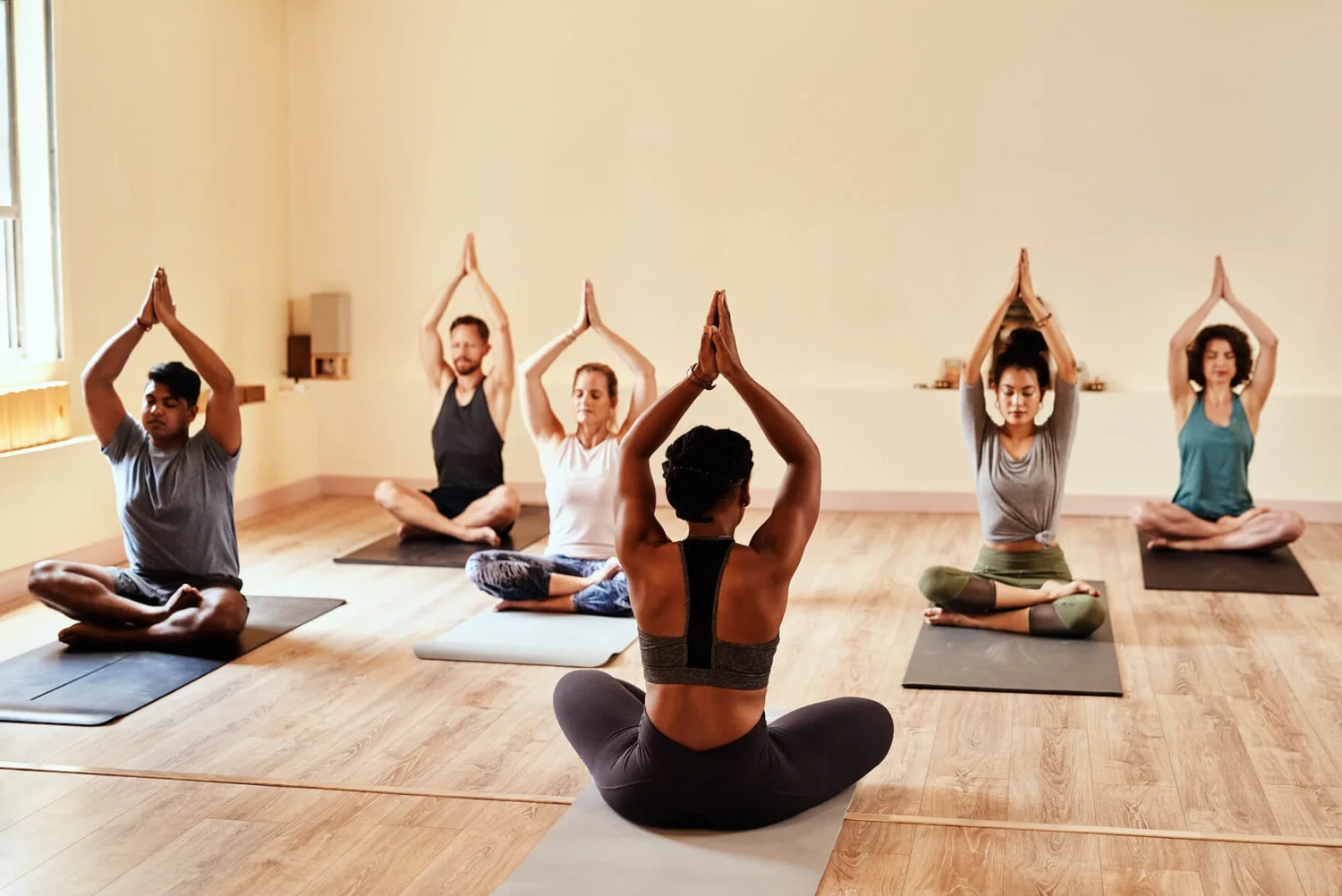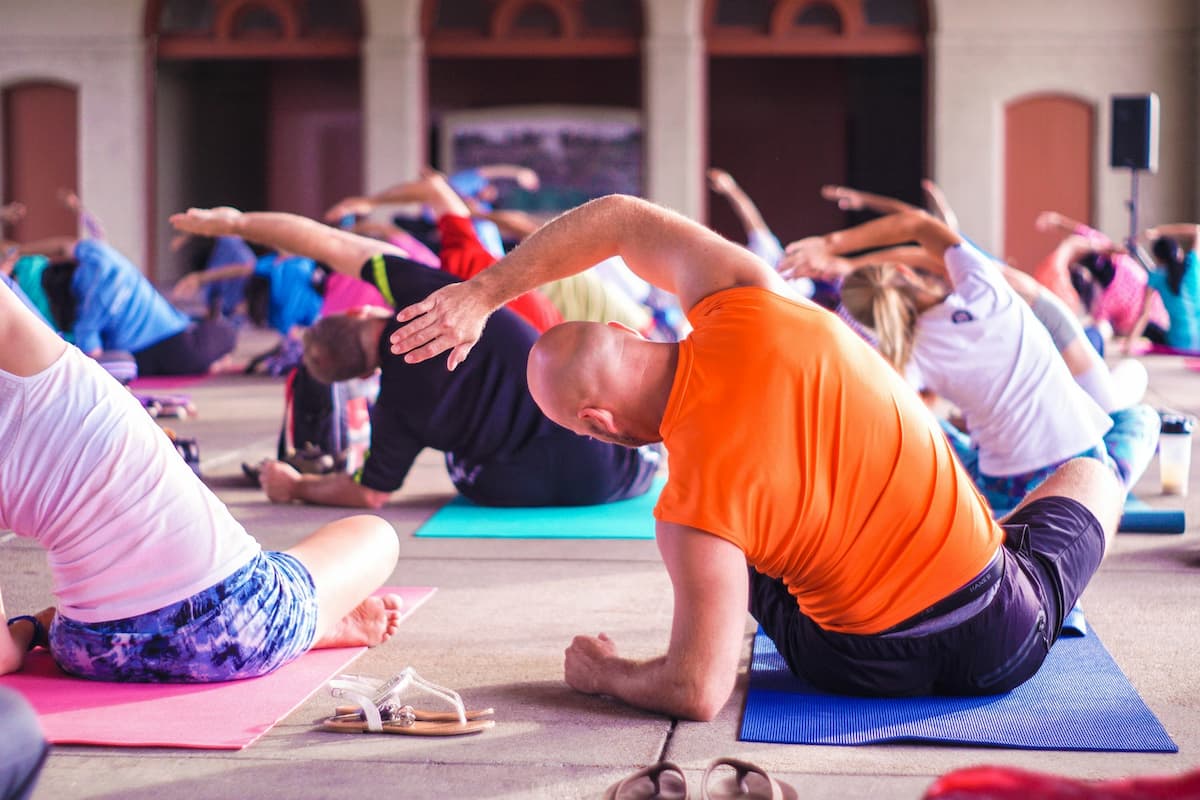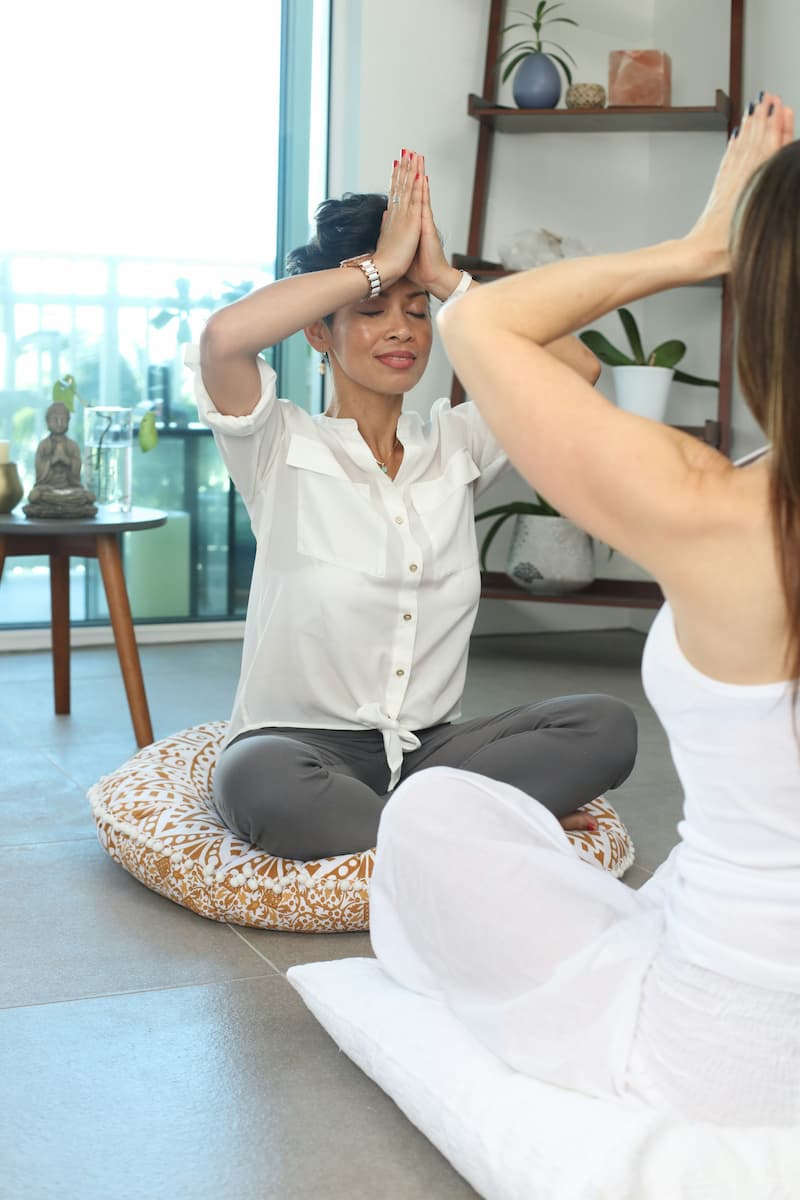Stay active, practice mindfulness, and connect regularly with your support team. Simple habits—like walking, breathing exercises, or journaling—can help maintain your progress.
Yoga Therapy Solutions
Yoga Therapy for Mental Health and Addiction Recovery in the Phoenix Metropolitan Area

Healing from addiction or mental health challenges requires more than just clinical treatment—it requires balance, self-awareness, and a renewed connection to your body and mind. At Rock View Recovery, we offer yoga therapy as part of our holistic approach to care.
This evidence-based service complements traditional therapy and helps you develop tools for lifelong recovery. By combining movement, breathwork, and mindfulness, yoga supports emotional stability, mental clarity, and physical strength. It offers a way to reset your body’s stress response and reconnect with the present moment—key elements in managing triggers and staying on track.
Yoga therapy is especially powerful for those recovering from trauma, anxiety, depression, or substance use. It helps you develop inner calm, build resilience, and regain control of your life. Whether you’re new to yoga or experienced, our program is designed to meet you where you are.
Our Yoga Therapy Solutions
Yoga therapy at Rock View Recovery is more than stretching or exercise. It’s a gentle but impactful practice that supports healing at every level—mind, body, and spirit. Each session is tailored to meet the needs of people in recovery. You’ll learn how to reduce stress, improve focus, and build confidence in a safe and welcoming environment.
Here’s how we integrate yoga into your treatment plan:
Guided Yoga Therapy Sessions
Our sessions are led by skilled, trauma-informed instructors who understand the challenges of recovery. Each practice is designed with your healing in mind. You’ll move through calming, purposeful poses that help release tension, improve balance, and build strength.
These sessions aren’t about doing advanced postures. They’re about learning to listen to your body and respond with care. Over time, yoga helps you rebuild trust in yourself and your ability to grow stronger—physically and emotionally.

Mind-Body Connection
One of the most valuable tools in recovery is awareness. Yoga strengthens the mind-body connection, helping you tune into your thoughts, feelings, and physical sensations. This heightened awareness makes it easier to identify stressors, recognize triggers, and manage emotions in a healthy way.
This connection isn’t just helpful—it’s vital. When you’re more aware of what’s going on inside you, you’re less likely to react impulsively or rely on old habits. Yoga gives you space to respond with intention.

Breathing Exercises and Meditation
Addiction often brings chaos. Yoga brings calm. Each session includes breathing exercises (known as pranayama) and short meditations that help quiet the mind. These tools are easy to learn and can be practiced anywhere—at home, at work, or during stressful moments.
Breathwork reduces anxiety, soothes the nervous system, and increases mental clarity. Meditation enhances focus, improves mood, and supports emotional regulation. Together, they give you daily tools to stay grounded and present.

Holistic Healing
Yoga fits seamlessly into our wider approach to recovery. At Rock View Recovery, we combine yoga with innovative methods like brain center technology and other holistic services. This well-rounded model supports healing from every angle—physically, mentally, and emotionally.
Our goal is to give you the best chance at lasting change. By offering yoga therapy as part of our programs, we ensure that your recovery journey includes movement, mindfulness, and self-care—along with expert clinical support.


The Benefits of Yoga Therapy
Yoga therapy offers more than relaxation—it creates lasting transformation. When practiced consistently, it strengthens both your body and your mind. Here are the ways yoga supports long-term recovery:
Building Strength and Flexibility
- Yoga improves posture, coordination, and muscle tone.
- It builds physical endurance while promoting gentle movement.
- As you grow stronger physically, you also build mental resilience.
Stress Management
- Deep breathing and slow movement teach you how to stay calm under pressure.
- Yoga helps regulate your nervous system, making it easier to manage difficult emotions.
- It gives you tools to face stress without turning to substances.
Inner Peace and Calm
- The quiet, intentional nature of yoga reduces anxiety and depression.
- Movement combined with meditation brings a sense of inner stillness.
- With regular practice, you’ll notice fewer cravings and more emotional control.
Mindfulness and Emotional Awareness
- Yoga helps you notice what you’re feeling without judgment.
- You’ll become more aware of how certain thoughts or situations affect your mood.
- This awareness is key for managing triggers and preventing relapse.
Promoting Self-Care
- Yoga encourages you to listen to your body and treat yourself with kindness.
- It helps reinforce healthy routines and personal boundaries.
- You’ll learn that taking care of yourself isn’t selfish—it’s necessary for recovery.
Frequently Asked Questions
Q:How can I support my recovery outside of yoga therapy?
Q:How can I incorporate mindfulness into my daily life to further support my recovery?
Start with small moments. Take a few deep breaths before meals. Pause and notice how you feel throughout the day. Practice gratitude, listen to calming music, or meditate for five minutes each morning.
Q:Should I do yoga every day to benefit from it?
You don’t need to practice daily to see results. Just a few sessions a week can make a big difference. The key is consistency and approaching each session with intention.
Q:What is the best time of day to practice yoga for recovery?
Morning or evening sessions are ideal. Practicing in the morning helps set a calm, focused tone for your day. Evening yoga helps you unwind and prepare for restful sleep.
Q:Can yoga therapy help with anxiety or depression in addition to addiction recovery?
Yes. Yoga is proven to reduce symptoms of anxiety and depression. It helps calm your mind, improve sleep, and regulate mood—all essential for both mental health and sobriety.
Reclaim Your Life with Yoga Therapy
Yoga therapy is a powerful and accessible way to support your recovery. It invites you to move with intention, breathe with purpose, and live with clarity. When combined with clinical treatment, peer support, and other holistic services, yoga can be a life-changing addition to your rehabilitation journey.
At Rock View Recovery, we’re here to walk beside you every step of the way. Whether you’re facing addiction, mental health struggles, or both, our programs offer real guidance, connection, and hope. We believe in your ability to heal—and we’re honored to be part of your story.
Our treatment options feature a range of holistic therapies, including mindfulness, art, equine, music, recreational, and more.
Contact our company today to learn how our yoga therapy, counseling, and other services in Maricopa County can support your recovery and transform your life.